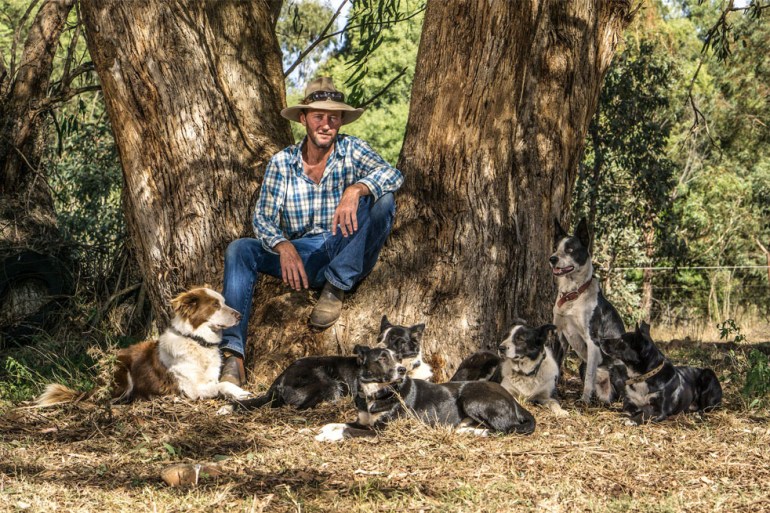‘Backtrack Boys’ director Catherine Scott is among those who spearheaded the campaign.
More than 250 filmmakers have co-signed an open letter calling for a “radical overhaul” of government policy in order to sustainably support the independent documentary sector now and into the future.
The letter, from the newly formed Australian Independent Documentary (AID) group, argues that recent policy changes have undermined the viability of the independent documentary sector and its ability to produce distinct and original Australian content for both local and international audiences.
It calls variously for Screen Australia to work with the public broadcasters to create a dedicated strand on Australian public broadcast television for original Australian documentary, and for the federal agency to stop allocating funds to foreign majority owned companies at development and production stage; to increase funding support for original Australian formats; recognise cinema-on-demand as a legitimate form of cinema distribution, and to establish a dedicated fund for international co-production.
The letter has been spearheaded by Ruth Cullen, Pat Fiske, Mark Gould, Tom Zubrycki, Simon Nasht, Catherine Scott, Anna Broinowski, Trevor Graham and Sally Ingleton, who launched the call to action today at the Australian International Documentary Conference (AIDC).
Among the letter’s co-signatories are Bob Connolly, Scott Hicks, Gillian Armstrong and David Bradbury, and it has also been endorsed by Australian Screen Editors and the Australian Directors’ Guild (ADG).
“Since 2007 large amounts of Screen Australia and public broadcaster funds have been going to foreign-owned companies who benefit directly from Australian taxpayer money,” the letter states.
“As a consequence, the funding available to Australian documentary makers has diminished, with the long-held cultural and legislative imperative to support films made in the “national interest” all but disappearing from screen agency and public broadcaster discourse.
“This is despite the fact that Australian documentaries continue to perform competitively at box office, on free-to-air, pay TV and SVOD platforms; and on the international film festival circuit and feature-length SVOD and broadcaster slots – where documentary is experiencing a popularity boom.”
The AID’s letter also takes issue with Screen Australia’s recently announced changes to the Producer Equity Program (PEP), arguing they must be halted until there is extensive industry consultation.
In late January, the agency announced that the $2.5 million base funding pool allocated for the PEP this financial year will likely be exhausted before the end of June. While this has happened in the past, it said this happened much earlier than usual – 29 PEP applications were processed by last December, representing $1.7 million in funding.
As such, Screen Australia has increased the 2018-19 internal PEP budget to $3 million, and will continue to accept applications up until March 29 based on the existing guidelines, subject to budget availability. However, from April 1 until the end of the financial year, it has introduced a series of interim clarifications, including evidence of “an appropriate and realistic pathway to audience”, that the producer, writer and director/s of the documentary be Australian citizens or permanent residents, and evidence of appropriate cultural consideration, particularly on projects with Indigenous content/participation. PEP applicants will also no longer be eligible for other Screen Australia documentary production funding (including initiatives) and vice versa.
In the second half of 2019, Screen Australia has said it will launch a discussion paper of its documentary production funding programs. The agency will aim to report on the review in late 2019, with any permanent revisions to guidelines or programs to be effective in the first quarter of the 2020 calendar year.
In response to the AID’s letter, a Screen Australia spokesperson reiterated to IF the launch of the discussion paper later in the year.
“The current programs have been in existence since 2015/16, and the media landscape has changed dramatically in the resulting years propelled by streaming and changes in audience viewing behaviour. Industry input will be sought and interested parties should subscribe to Screen Australia’s newsletter to be kept updated.”
While the review is active the 2018-19 total budget allocation for documentary within Screen Australia will remain unchanged and in line with the 2016/17 ($15.7m) and 2017/18 ($15.6m) spends.
The AID also states in the letter that it supports the guilds’ ‘Make It Australian’ campaign push for a 15 per cent quota on SVOD players in the Australian market.
It also called for the government to provide a place for a documentary representative on the Screen Australia board.
Last year, 38 production companies companies, producing teams and individual producers put in a submission to Screen Australia arguing the agency should deny funding for BBC Studios’ productions in Australia and stop investing in local remakes of international formats.
Screen Australia rejected the letter, with chief operating officer Michael Brealey stating in a letter of reply: “Screen Australia’s view is that competition for its direct funding is to be encouraged as it ensures well developed projects, high-quality applications and promotes the best outcomes for audiences.”
The full list of recommendations to Screen Australia as per the AID’s letter:
“1. Engage in a dialogue with the public broadcasters and the documentary making community to create a dedicated strand on Australian public broadcast television for original Australian documentary (one-offs and series), to be supported through the Screen Australia Commissioned Program.
2. Stop allocating funds to foreign majority owned companies at development and production stage, ensuring that the intellectual property funded by public screen agencies and broadcasters is Australian owned.
3. Increase funding and support for Australian companies developing and producing original formats.
4. Suspend the announced changes to PEP until there is extensive industry consultation.
5. Establish a dedicated fund for international Documentary co-production.
6. Recognise Cinema on Demand (COD) as a legitimate form of cinema distribution, and guarantee that the 40 per tax offset is available to Documentaries incorporating COD into their distribution strategy.”


